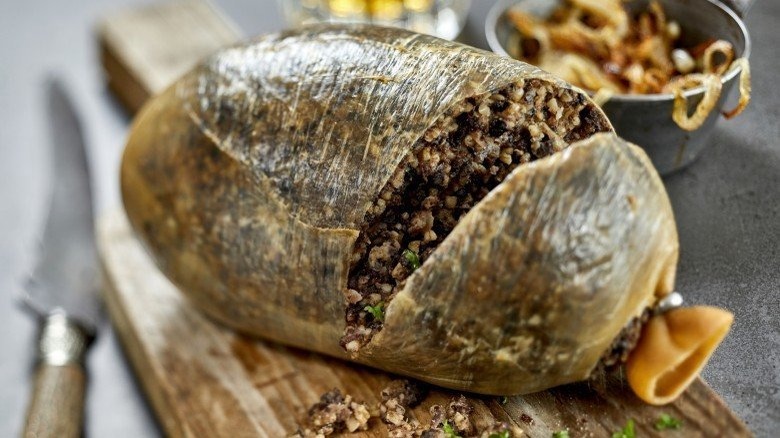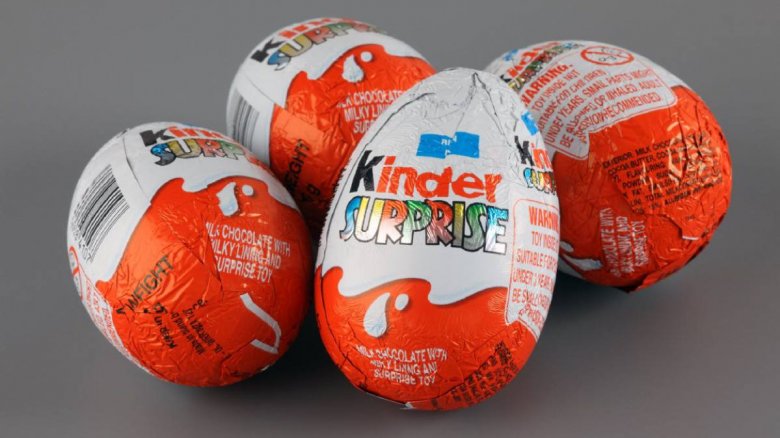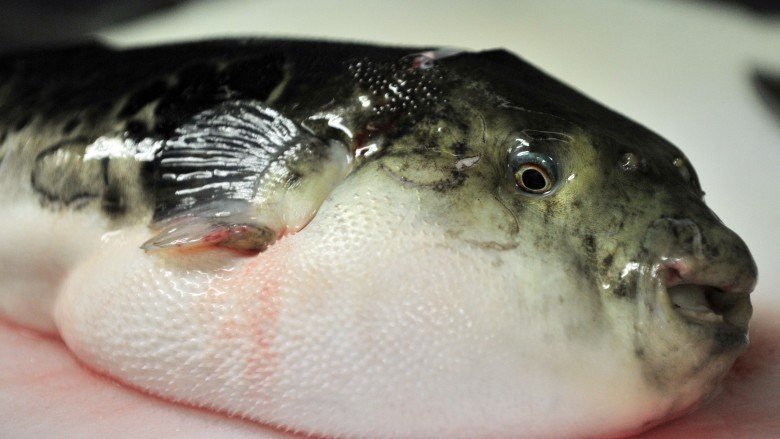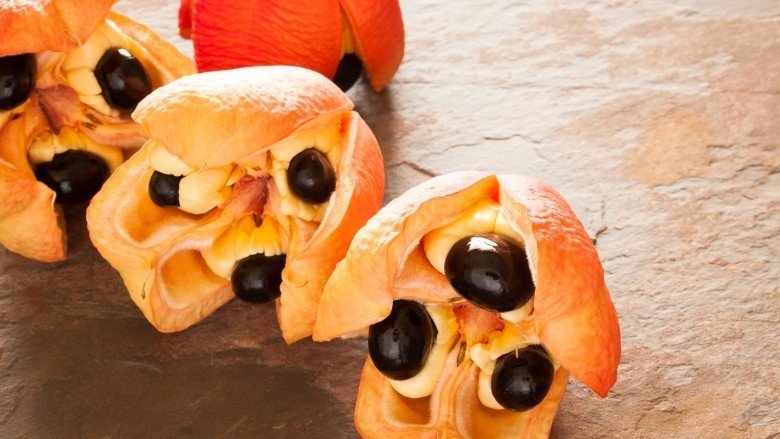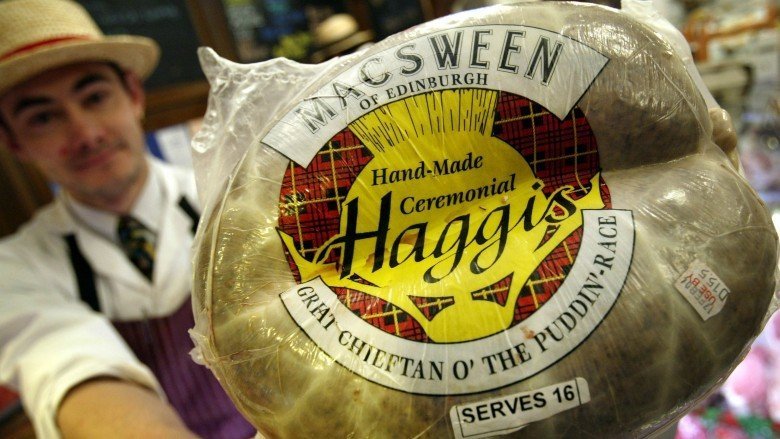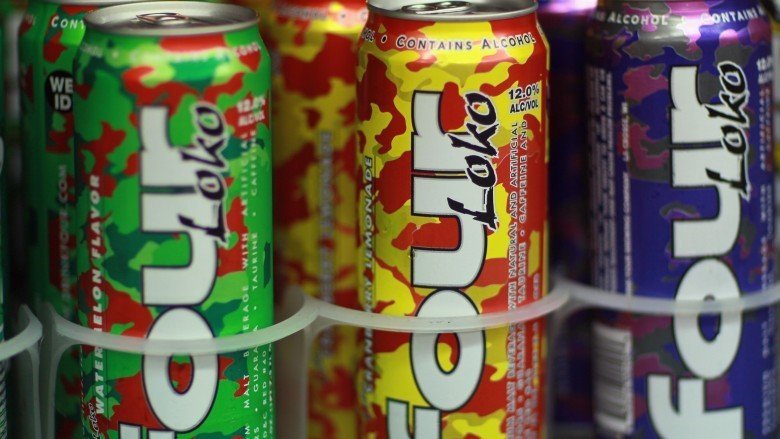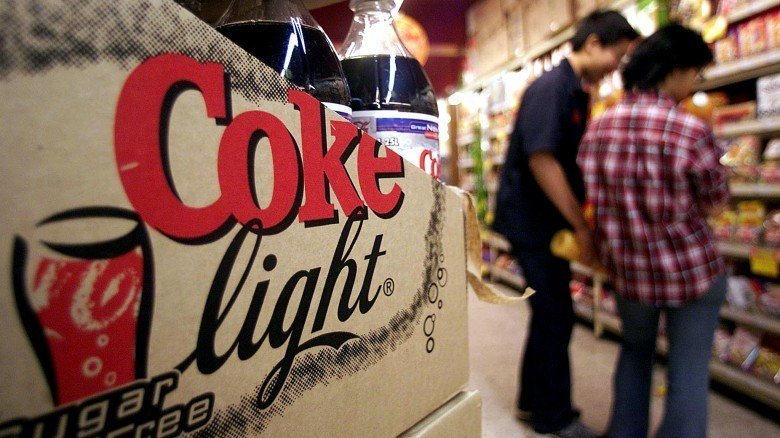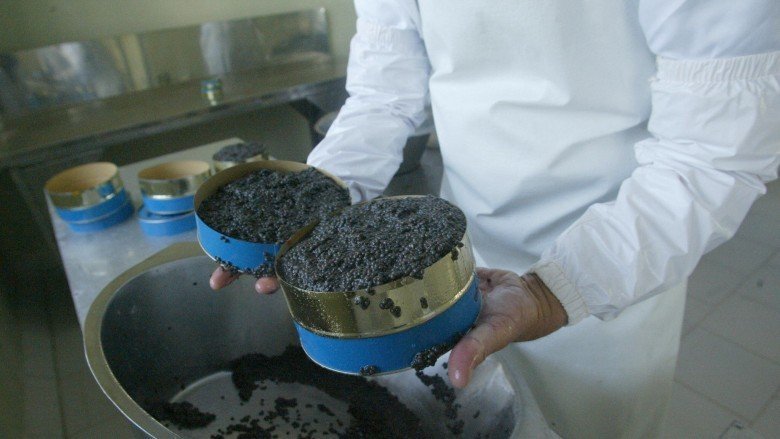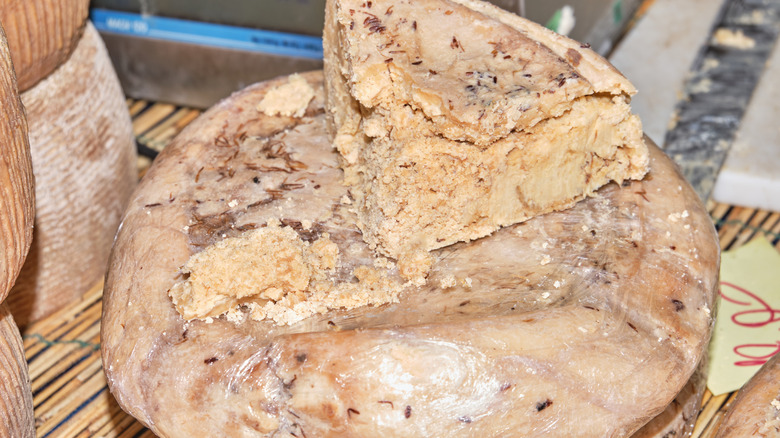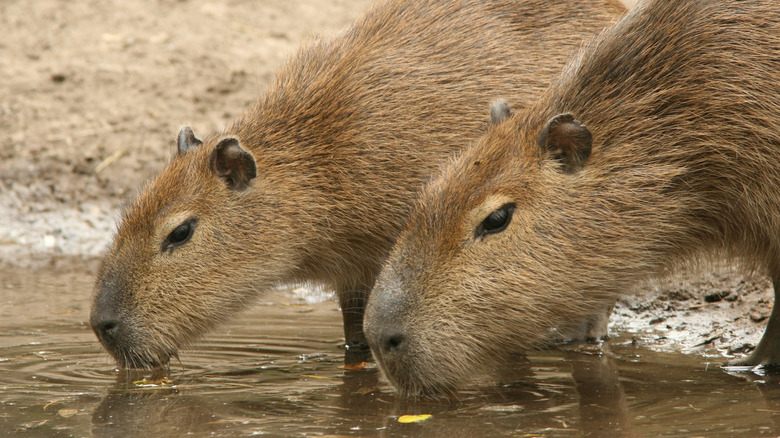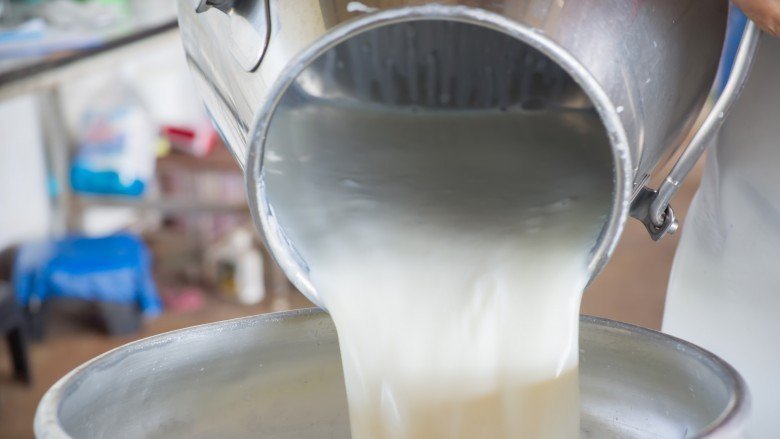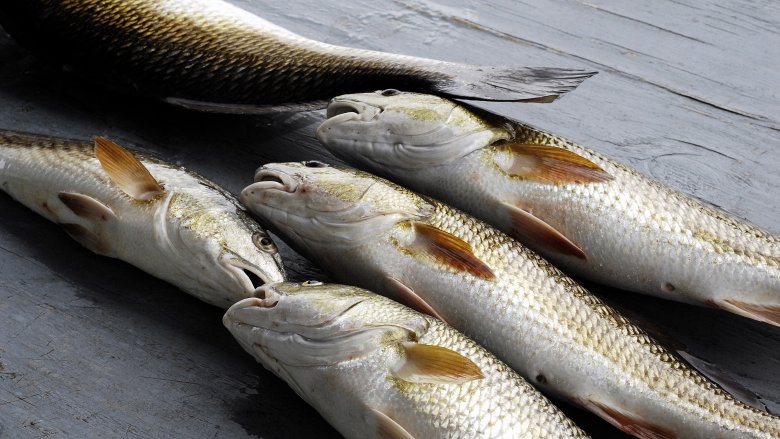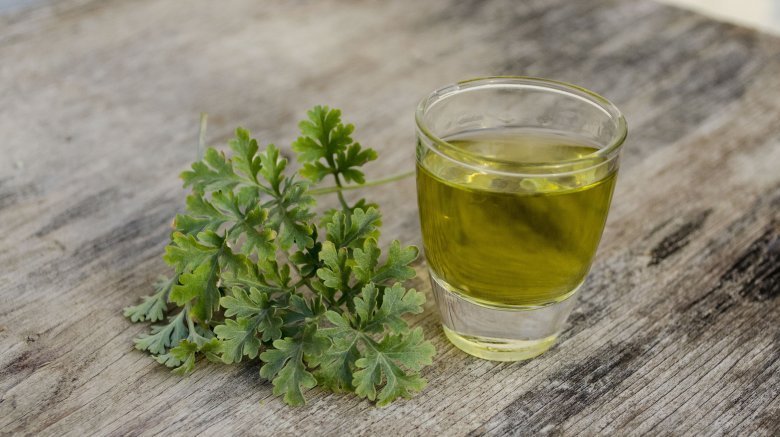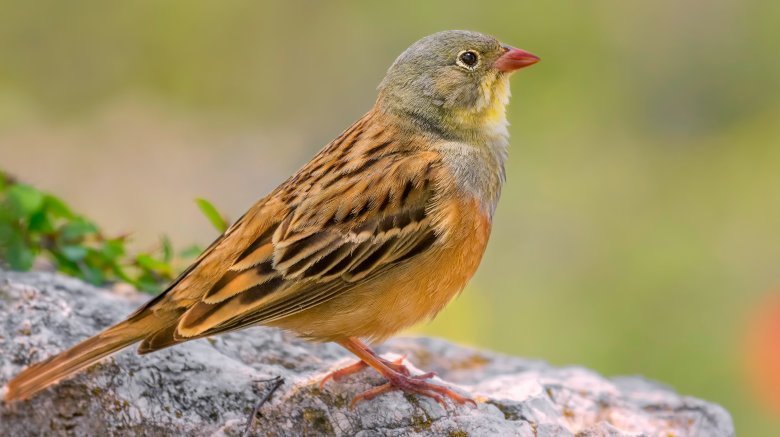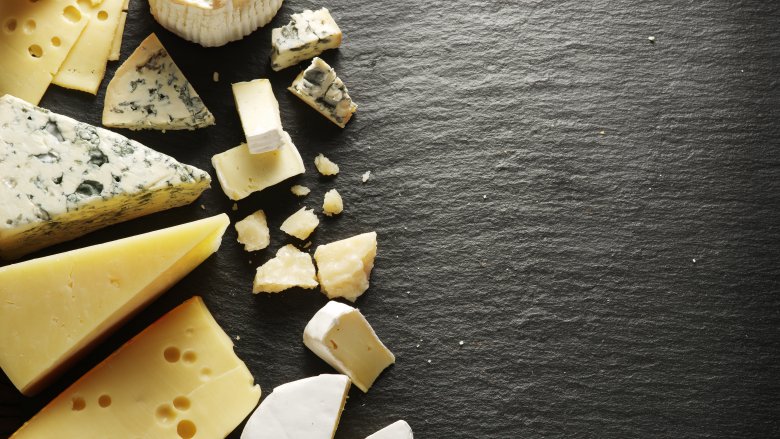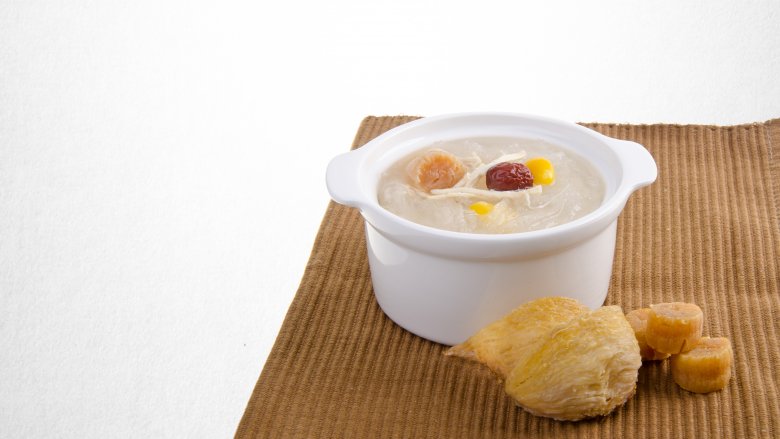Food And Drinks That Are Banned In America
When it comes to gastronomy, the United States is pretty lucky. There are countless food and drink options to sip, savor, and enjoy and you don't even have to live in a major metropolitan area to experience them all. However, our choices are actually a bit more limited than you may have thought. In fact, there are some much loved delicacies that are available throughout the world that you just can't get in the United States because Uncle Sam has put a stop to them with tons of red tape and strict regulations. The items on this list have been banned or severely restricted in America for a variety of reasons, all of which we're about to explain. Some you might agree with, and some might surprise you. Either way, you're out of luck if you get a craving for these foods — unless you know anything about the black market, of course.
Kinder Surprise Eggs
Anyone who has traveled across the pond or even to Canada knows about Kinder Surprise Eggs. These delectable little treats from Germany are hollow chocolate eggs with a capsule inside that contains a toy. The toys in Kinder Eggs are pretty awesome — nothing like the paltry prizes that used to be in Cracker Jacks.
Kinder launched the eggs back in 1974, but the reason for the ban in the United States goes back several decades before that. The Huffington Post explained that the treats violate the Food, Drug, And Cosmetic Act of 1938 which bans all candies with "non-nutritive" items inside of them. Even though the plastic capsule inside of a Kinder Egg is quite large and difficult for a child to open, the main reason behind the ban is that they qualify as a choking hazard. And don't try to sneak them over the border! Some people caught by customs agents have faced fines up to $1,200 per egg.
Fugu
Do you like to live on the edge when you have a meal? Maybe you like to test your tastebuds' limits by trying burritos slathered in ghost chili sauce, but what about eating something that literally could kill you in one bite? Fugu is a Japanese puffer fish that if not properly prepared, could immediately paralyze you and cause you to stop breathing after eating a single bite. Though banned here, the fish is legal in Japan, but it takes years of knowledge and expertise for a sushi chef to even attempt to clean the fish. So what makes Fugu so deadly?
According to Eater, the organs of the puffer fish contain high amounts of neurotoxins, because when in the wild they feast on poisonous snails and other sea creatures. While it's not completely banned in the US, very few chefs are licensed to prepare and serve it.
Ackee
Jamaica is famous for gorgeous beaches, great Reggae music, and a bobsled team. They're also known for a fruit that was indigenous to West Africa. Ackee is considered the national fruit of Jamaica and is one of the main ingredients in the county's national dish, ackee and saltfish, but the fruit that tastes like cheese is somewhat banned in the United States.
According to the FDA, Ackee naturally contains high levels of hypoglycin A which can cause severe vomiting with the possibility of coma and even death. When the fruit ripens, the hypoglycin levels do drop in some parts of the fruit, but it still takes much expertise and care to process it safely. Imported canned and frozen ackee is not completely banned, but only certain distributors who have been deemed safe by the FDA are able to ship the product to the US.
Haggis
Scotland's most famous dish has been banned in America since 1971 when the USDA announced that foods containing livestock lungs couldn't be made on US soil or imported. If you're unaware, Haggis is a savory pudding made from a sheep's heart, liver, and lungs, mixed with spices, onions, and oatmeal. It's then stuffed in a casing made from a sheep's stomach. The problem is lungs, which are banned from use as food in the United States. Things got even more complicated when the import of British lamb was banned in 1977 due to the possibility of communicable diseases.
Four Loko
You might remember the fairly recent hype surrounding boozy energy drinks. There was Joose and Sparks, but public enemy number one was Four Loko. Yes, they do still make this drink, but the Four Loko that was available several years ago is not the same as it is now.
In its heyday, rumors swirled that one can of this surgery booze drink contained twice the caffeine as an 8-ounce Red Bull and as much booze as four cans of Budweiser. During the beverage's peak popularity, it was banned in multiple states and a federal ban was planned after several deaths were reported, allegedly because of Four Loko.
The Washington Post reported that in 2014, Phusion Projects, the company behind Four Loko, made an agreement with the FDA that it will not use caffeine in any beverages sold in the United States. The original caffeinated formula, which gave it the nickname "blackout in a can" is still being sold abroad. In fact, it has a huge following by young people in China where it has the nickname shi shen jiu, which translates to "lose virginity liquor."
Cyclamate
If you're watching your sugar intake, you have a wide variety of artificial sweeteners to reach for to sprinkle in your morning coffee. Do you want Equal, Splenda, Sweet 'N Low, or Cyclamate? Sorry, the last one has been banned since 1969. The blog, Brooklyn Brainery gave a brief history of the artificial sweetener and why it was banned.
Developed in the late 1930s by Michael Svaeda, this artificial sweetener was 10-times sweeter than sugar and it didn't leave an aftertaste. However, a study was conducted in 1969 claiming that Cyclamate caused bladder cancer in lab rats. Since then, the sweetener has been banned in America. It's still approved in many other countries, including Canada and Mexico where it's used as a main sweetener for diet soft drinks such as Coca-Cola Light. Several scientific studies conducted after 1969 proved that Cyclamate does not cause cancer. Even though the FDA was considering lifting the ban in 1989, it has yet to happen.
Beluga Caviar
If your idea of a casual snack is a small dollop of beluga caviar on top of a crisp piece of melba toast, I'm sure you've been weeping since the US banned it in 2005, but your bank account has probably been happy. The New York Times reported that the The United States Fish and Wildlife Service issued the ban because of over-fishing of the endangered prized beluga sturgeon, which primarily calls the Caspian Sea its home.
The salty treat, which is considered one of the most expensive foods coming in at roughly $220 per ounce did have its international ban lifted in 2007 by the U.N., but the US ban is still in effect.
Casu marzu
I'll let you folks in on a little secret. I'm lactose intolerant, but I love cheese. I'll double up on Lactaid pills if I want to enjoy a nice brie or even a few Kraft Singles for a late night grilled cheese, but there is one cheese that even if it wasn't banned in America I would never try it. Casu marzu is a cheese from Sardinia, Italy (where it is also banned) — and it's full of live maggots. Nope, it didn't spoil, that's how you're supposed to eat it.
The Huffington Post explained that the process takes several months. Pecorino cheese made from sheep's milk is made first, and after a few weeks, the crust is cut off so flies have a spot to lay their eggs. The cheese is then transported to a dark hut so the eggs can hatch into larvae. Once enough larvae have been produced, the casu marzu is ready to eat. The maggots need to be alive when consuming the cheese, as dead bugs mean that it has gone bad.
Bushmeat
The United States Fish and Wildlife Service has banned the importation, selling, and consumption of bushmeat. Bushmeat are animals hunted and slaughtered in rural Africa including gorillas, chimpanzees, antelopes, and elephants.
Despite the bans, illegal bushmeat trading is still a problem in America. In an extensive report by Newsweek, from 2009 to 2013, United States Customs Agents confiscated over 69,000 different bushmeat items from fruit bats to monkeys. When eating any bushmeat, you could possibly contract deadly and dangerous diseases that aren't common in the US.
Raw milk
The debate over raw, or unpasteurized milk is a heated one in the United States. Currently, 18 states have banned the sale of raw milk, and in 1987 the FDA required all milk and milk products to be pasteurized in order for human consumption if they want the product to cross state lines. You probably remember the story of French scientist Louis Pasteur from your middle school science classes who discovered pasteurization, which is the heating of raw milk in order to kill bacteria so it is safe to eat. Obviously, unpasteurized milk or raw milk skips this step.
The CDC has stated that consuming raw milk can lead to diarrhea, vomiting, and possibly death. Raw milk is basically a host for all sorts of nasty stuff such as listeria, E.coli, and salmonella. Even if you live in a state such as California or Pennsylvania where raw milk is available for sale, be extremely careful when drinking it and know the risks. Despite these known dangers, raw milk advocates still say that the pros of drinking unpasteurized milk outweigh the cons.
Redfish
In 1998, The New York Times reported that Louisiana had banned the commercial catching of redfish, or Red Drum, a craze perpetuated by renowned chef Paul Prudhomme when he introduced his delectable blackened redfish in his French Quarter restaurant, K-Paul. Marine biologists discovered that only 2 percent of wild redfish were making it out into the spawning offshore stock, nearly ensuring they would go the way of the Dodo. Later, in 2001, the Times published a follow-up that stated the ban was still active, and there was not much chance it would be lifted. The ban stretched to Texas, and later the entire country with a federal ban.
For those dying to try their hand at Prudhomme's recipe, farmed redfish are available, but the federal ban on commercial fishing has never been lifted.
Absinthe
Absinthe, the "Green Fairy" drink that has been romanticized in films like Bram Stoker's Dracula and Moulin Rouge, makes the "illegal" list on a technicality. The name absinthe is from the Latin absinthium, which is a derivative of the Greek for wormwood. Wormwood is what gives absinthe the questionably illegality, because it contains an element called thujone, found in wormwood oil. Sometime in the early 1900's, a French doctor tested wormwood oil on animals, who had seizures from the substance. He later studied alcoholics with a proclivity for absinthe, and realized that they, too, had seizures and made the connection. So, of course, absinthe was banned in the US, until the mid 2000s, when makers of absinthe worked to ensure that the thujone levels in their libations were under the 10 parts per million limit.
The million dollar question here is, does most absinthe contain "illegal" levels of thujone? The answer, according to The Wormwood Society, is no. Is it possible that such absinthes exist? Sure. True absinthe has to contain wormwood as the main ingredient and have the characteristic flavor of aniseed and wormwood. While most makers will never come close to topping out the thujone limit, it is possible, and that type would still be illegal in the United States.
Ortolan
The traditional method of cooking this little songbird would make many nature enthusiasts encourage a ban. It is so bad, in fact, tradition says those who eat this French delicacy should cover their head with a napkin, to hide "the shame of such a decadent and disgraceful act." The birds are captured during their migration to Africa and kept in dark cages to eat grain until they nearly double in size. Then, they'd be thrown into a bucket of Amagnac, a type of brandy, where they'd drown AND be marinated at the same time. Even more disgusting (if that's possible) is the fact that diners would eat the bird in one bite — heads, beaks and bones included. It was supposed to be really, really tasty. Late president of France, Francois Mitterrand, was a big fan.
While the cooking method is certainly controversial, the orlotan population decreased dramatically in the 1970s and 1980s, and in 2007, France ramped up the ban, setting a six thousand Euro fine for the killing of one of the little songbirds. The ban stretched through the EU. And, since these birds are endangered, American chefs are prohibited from the barbaric and cruel preparation, and no new orlotan fans, napkin and all, will be created in the US.
Cadbury chocolate
Cadbury is incredibly popular across the pond, which is bad news for fans of the British chocolate who find themselves in America. While you'll see plenty of labels bearing the Cadbury name, the chocolate served here is completely different than the United Kingdom's — thanks to different recipes.
In the 1980s, Hershey bought the rights to Cadbury's U.S. operations and soon imposed a ban on importing Cadbury chocolate manufactured in the U.K. Cadbury devotees swear the British version of the chocolate is better, but most Americans will never know for themselves unless they make the trip overseas.
Unpasteurized cheese
The U.S. takes a strong stance against unpasteurized dairy products being sold, meaning a lot of cheeses which are popular in Europe are forbidden here. Only cheeses which have been aged for more than 60 days or fresh cheeses made with pasteurized milk can be imported, a regulation put in place in order to avoid bacteria found in raw milk. This means that delicious cheeses like Camembert and authentic brie cannot be sold within America's borders. The ban has led to smuggling rings and people illegally making their own cheese.
Bird's nest soup
This delicacy is a rarity even in its native China. Foodies looking to try this dish will have to travel to Asia (and spend a pretty penny) in order to get their hands on it. According to superstition, regularly eating this expensive soup will ensure a long, healthy life and restore youth.
The main ingredient of the soup is edible bird's nests made from the saliva of swiftlets. These birds are currently listed as an endangered species, making the ingredients increasingly hard to come by, as well as controversial.
Travelers attempting to bring the nests into the U.S. in order to recreate the delicacy at home have had them seized, because bird's nests can carry pests or infectious diseases. Since swiftlets are primarily found in southeast Asia, this is a soup that's not going to be found on American menus any time soon.
